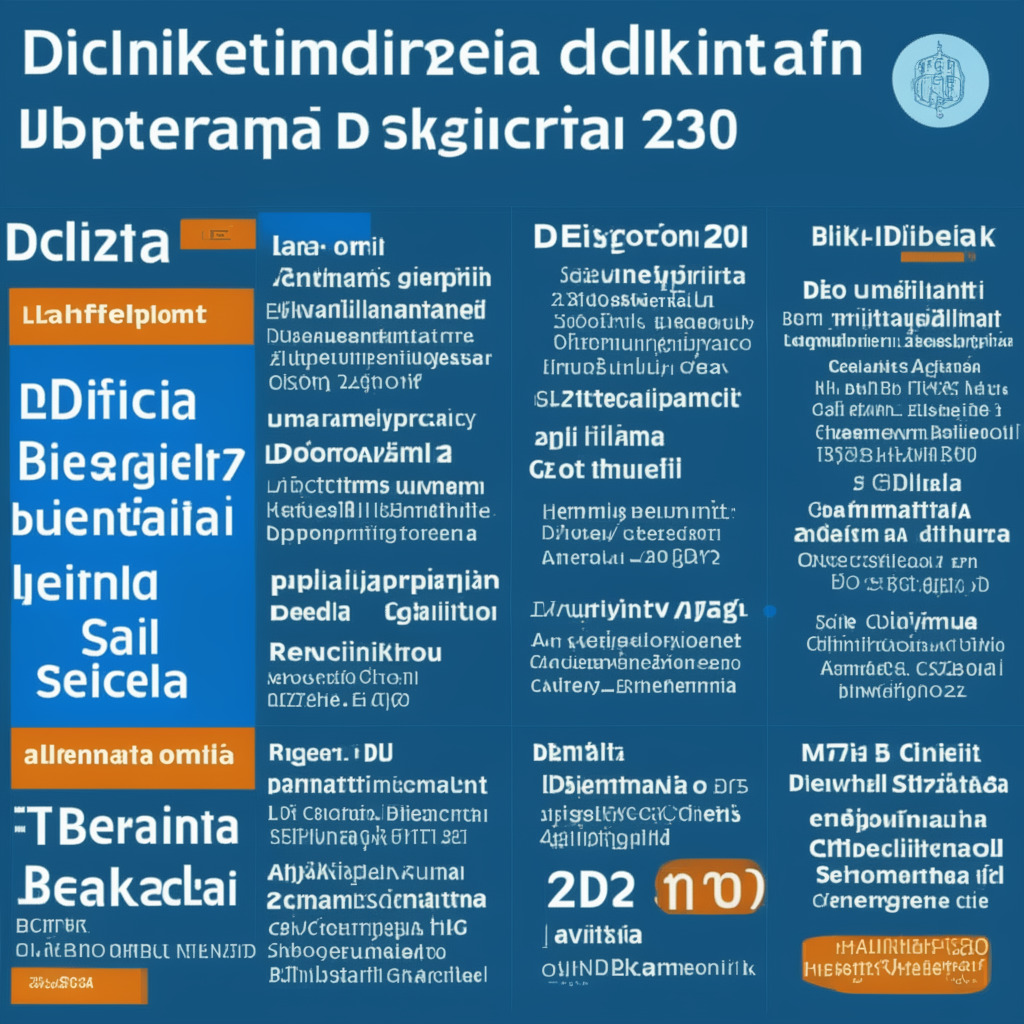Mairead McGuinness, European Commissioner for Financial Stability emphasizes cautious approach to digital euro implementation. As cash loses popularity and commerce digitalizes, a future with digital central bank public money is anticipated. The transition could massively impact cross-border payments and global financial sectors, hence the need for careful scrutiny.
Search Results for: European Parliament
European Legislation on Cryptocurrency: A Leap Forward or Bank Lobby Win?
“The European Parliament has passed a bill allowing banks to hold up to two percent of their capital in cryptocurrencies from January 2025, signaling evolution in global cryptocurrency regulation. However, Stefan Rust, ex-CEO of Bitcoin.com, views the bill as favoring financial institutions more than common investors.”
European MiCA Consultations: The Path to Crypto Regulatory Clarity and Environmental Concerns
The European Securities and Markets Authority (ESMA) will launch a three-part consultation process for the Markets in Crypto Assets (MiCA) framework, aiming to establish a consistent regulatory environment for cryptocurrencies in the EU. This will cover authorization, governance, conflicts of interest, and complaint handling procedures, ultimately benefiting crypto enthusiasts and businesses alike.
European Crypto Scene: Right-Wing Attraction and the Future of Blockchain Politics
The European crypto scene has gained significant traction, attracting right-wing politicians due to its decentralized nature, offering financial sovereignty and challenging existing financial establishments. However, support for cryptocurrencies is not limited to any political persuasion, and fostering education and regulation is crucial to maintaining an inclusive crypto community.
AI-Generated Speech in Parliament: Embracing Innovation or Risking Legislative Integrity?
Italian Senator Marco Lombardo used a GPT-4 chatbot-generated speech to spark debate on AI’s implications and potential in policy-making. As governments explore regulatory measures for AI systems, balancing AI benefits with ethical, moral, and safety concerns is crucial, urging responsible implementation and critical evaluation of its consequences.
Navigating Crypto Regulations: A Tactical Balance in Market Stability and Technological Innovation
The European Parliamentary Research Service (EPRS) suggests regulators from non-EU regions need to impose stricter controls on cryptocurrency for market stability. Heavy reliance on non-EU nations’ policies for the EU’s fiscal system is cited as a concern. Regulatory uncertainty in the US and changes in the UK’s crypto-assets identification are highlighted. The balance between innovation and regulation is imperative for the protection of investors, market and the ongoing creativity of the crypto industry.
Navigating the Crypto-Regulatory Landscape: An Insight into the EU’s Directive on Administrative Cooperation
The eighth iteration of the Directive on Administrative Cooperation (DAC8), which introduces mandatory tax reporting for cryptocurrency transactions, has received overwhelming support from members of the European Parliament. DAC8 is expected to aid tax authorities in monitoring and assessing cryptocurrency transactions to improve transparency and counter tax fraud.
SEC vs Binance.US Showdown: Unearthing Past Statements and Facing New Legislation
The U.S. SEC’s intention to freeze Binance.US’s assets faced a setback as Judge Amy Berman Jackson advised bilateral negotiations. Meanwhile, HKMA urges banks to accept crypto exchanges as clients, and the European Parliament passes the EU Artificial Intelligence Act, impacting governance of AI technologies.
EU’s AI Act: Striking Balance Between Regulation and Innovation in Blockchain Future
The European Parliament has voted in favor of the Artificial Intelligence Act, a draft law for regulating AI based on risk categories. The law aims to address concerns such as bias, discrimination, and job displacement while protecting European values of democracy, fundamental rights, and the rule of law.
Regulating AI: Balancing Innovation with Generative Dangers and Global Cooperation
UN Secretary-General António Guterres joins the call for AI regulation, comparing its potential threat to humanity to nuclear war. European Parliament passes world’s first-ever AI legislation, while OpenAI CEO Sam Altman supports regulating AI through establishing a government office and standards for development.
EU AI Act: Balancing Innovation and Ethics in Artificial Intelligence Regulation
The European Parliament recently passed the EU AI Act, aiming to promote human-centric and trustworthy AI while protecting health, safety, and fundamental rights. The act restricts certain AI services and products, including biometric surveillance and predictive policing, while allowing generative AI models like OpenAI’s ChatGPT and Google’s Bard, provided they are clearly labeled. The challenge lies in balancing innovation and safety in AI development.
Regulating Crypto Assets as Securities: Balancing Innovation and Accountability
A European Parliament study proposes that all crypto assets be considered transferable securities by default, suggesting shifting the burden of regulatory compliance from national regulators to entities directly involved in crypto trading. This aims to streamline the process while ensuring accountability, while also aligning with US practices. However, concerns arise about potentially stifling innovation and affecting smaller players in the industry.
Crypto Assets as Securities and Evolving Regulations: The Future of EU and Global Markets
A study commissioned by the European Parliament suggests that crypto assets may soon be treated as securities by default, based on the EU’s existing financial regulation framework. This move could lead to a more stringent regulatory environment for cryptocurrencies in the EU. Meanwhile, cross-compatibility of blockchain addresses gains momentum, and Gemini plans to acquire a crypto license in the UAE.
The Great Debate: Treating Crypto Assets as Securities by Default in the EU
A study commissioned by the European Parliament suggests treating crypto assets as securities by default, applying stringent EU governance and authorization rules. The report highlights regulatory challenges in the complex, cross-border crypto industry and raises questions about addressing decentralized finance, staking, and non-fungible tokens within the upcoming Markets in Crypto Assets (MiCA) regulation.
Unbacked Cryptocurrencies: Ponzi Schemes or Legit Investments? Central Bank’s Dilemma
Central Bank of Ireland Governor Gabriel Makhlouf likens unbacked cryptocurrencies to a “Ponzi scheme” and emphasizes the importance of differentiating between ‘backed’ and ‘unbacked’ crypto. The recent approval of MiCA by the European Parliament marks a significant step in cryptocurrency regulation, acknowledging the potential of cryptocurrencies while protecting consumers and investors from unwarranted risks.
Crossroads of Innovation and Security: EU’s Proposed Regulations on Large-Scale AI Models
The European Union is reportedly discussing stricter regulations on large-scale language models (LLMs) like OpenAI’s GPT-4 and Meta’s Llama 2, aimed at controlling these models without overloading start-ups. These discussions touch on the implications of LLMs, user safety, and ethical AI deployment, mirroring the approach of the EU’s Digital Services Act.
Coinbase Obtain AML Compliance in Spain: Striking Balance between Global Expansion and Regulatory Challenges
Coinbase has secured an Anti-Money Laundering compliance registration from Spain’s central bank, enabling crypto services in the country. As Coinbase expands globally, it faces possible complications from varying regulatory frameworks and is urged to prioritize asset security as skeptical holders consider withdrawing assets.
Crypto Galore: El Salvador’s Bitcoin Education to Binance’s Legal Tussle – the Week in Review
“The week in the crypto world was replete with notable developments from El Salvador’s Bitcoin literacy initiative to security issues identified with Telegram Bots by Certik. Meanwhile, high-profile legal battles and regulatory changes kept the industry on its toes. Despite challenges, tech giants like Sony and PayPal advanced their blockchain and crypto endeavors, emphasizing the market’s enduring dynamism.”
Debating the Pace of Euro’s Digitization: A Tactical Strike or Slow Rollout?
The EU financial services chief, Mairead McGuinness, emphasizes a cautious approach to the digitization of the euro, advocating strategic decision-making post the 2024 EU elections. Amid declining cash usage and rising e-commerce, the need for a digital currency alternative is expressed. Nevertheless, the transition could necessitate compromises some might resist, thereby requiring careful planning to not disrupt our financial foundations.
Unveiling the Digital Euro: Europe’s Step Towards CBDCs and What It Means For You
ECB executive Fabio Panetta recently detailed the European Commission’s plans for a digital Euro, asserting this could establish Europe as a leader in central bank digital currencies (CBDCs). The mission focuses on safeguarding European monetary sovereignty, preserving fiscal freedom, and ensuring privacy and data security. However, concerns remain over the compatibility of a digital Euro with existing financial structures.
Euro Digital Currency: Savior or Stumbling Block? A Review of the Potential Pitfalls and Progress
The digital euro by the European Union could face obstacles in non-euro states due to necessary international agreements between the EU and third-countries. Complex issues surrounding Central Bank Digital Currency (CBDC) usage, like unresolved legal queries concerning usage and jurisdiction, may hinder its implementation.
Myanmar’s First Cryptocurrency Bank: A Revolutionary Leap towards Financial Liberty
Myanmar is set to launch its first institution operating solely on cryptocurrency, the Spring Development Bank, aiming to facilitate smoother cross-border transactions. Constructed on the Polygon network, this financial platform leverages blockchain technology for global accessibility, combating international transfer fees with the deployment of stablecoins.
EU’s New Data Act: Justifiable Concern for Blockchain Sphere or Unfounded Fear?
The EU’s new Data Act draft has stirred up concerns in the blockchain sector, as it appears to ignore industry-specific issues and could potentially deem most smart contracts invalid. The legislation emphasizes on the “vendors” of these automated programs, causing fear among lobbyists as it could imply endless accountability in decentralized frameworks with no single seller.
The Dawn of Web 4.0: Europe’s Grand Plan to Dominate the Metaverse Despite Challenges
The European Commission anticipates ‘extended reality’ to generate 860,000 jobs by 2025, focusing on creating virtual worlds. While most innovation is happening outside Europe, the commission plans to make Europe a “world leader” in Web 4.0 and the Metaverse, despite challenges and lack of tech giants.
MiCA Regulations and Decentralized Finance: An Uncertainty in Europe’s Crypto Legislation Future
“The recent exclusion of decentralized finance (DeFi) and nonfungible tokens (NFTs) from the upcoming Markets in Crypto Assets (MiCA) regulations has raised concern in the blockchain industry. MiCA, a comprehensive crypto legislation, has notably omitted DeFi and NFTs, alarming industry participants.”
EU Crypto Regulations and Market Innovations: Balancing Growth and Compliance
The EU proposes “prohibitive” rules to keep unbacked crypto out of the traditional financial system, while Fireblocks expands support for major cloud providers and OKX launches Nitro Spreads feature for OTC institutional liquid market. Digital asset investments surge, but upcoming regulations may impact growth and innovation.
EU’s New Crypto Regulations: Balancing Innovation and Financial Stability
The European Union has reached a political agreement on updating the Capital Requirements Regulation and Directive, introducing new regulations for crypto assets to address concerns over “unbacked cryptocurrencies” entering the traditional financial system. The updated regulations aim to boost the strength and resilience of banks, with a “transitional prudential regime for crypto assets” included.
EU Bank Capital Laws: Balancing Crypto Growth and Financial System Stability
The European Union reaches a political agreement on new bank-capital laws aimed at keeping unbacked cryptocurrencies like Bitcoin and Ethereum out of the traditional financial system. Critics claim these rules may stifle the crypto market’s growth, while supporters argue they’re necessary for maintaining financial system integrity and stability.
Data Act’s Impact on Blockchain: EU’s Reassurance vs Industry Concerns
The European Commission addressed concerns about the Data Act’s impact on blockchain technology and smart contracts, claiming the law shouldn’t pose issues for smart contract software vendors. However, fears persist that the law’s scope could unintentionally extend further, affecting public permissionless networks and undermining the core of trustless transaction environments.
AI vs. Human Governance: Debating Regulatory Efforts and Crypto Restrictions Worldwide
AI experts sign an open statement highlighting the need for mitigating extinction risks from AI, as global regulatory efforts increase. Binance restricts privacy tokens trading in four European countries, while the MiCA cryptocurrency regulatory framework is signed into law.
Navigating EU’s MiCA Policy Gaps: Token Classification, Staking, and NFTs in Crypto Regulation
Experts raise concerns about gaps in the European Union’s Markets in Crypto Assets (MiCA) policy package, specifically in token classification, staking, and NFTs. The study suggests considering the US’s Howey Test for token classification and highlights the need for clarity on granting interest and investors’ profit expectations.
MiCA Rules Signed: Balancing Crypto Regulation and Innovation in the EU
The European Union’s Markets in Crypto-Assets (MiCA) rules have been signed into law, introducing a comprehensive regulatory framework for cryptocurrencies. The new regulations aim to prevent money laundering and provide regulatory clarity while maintaining a balance between innovation and necessary controls in the rapidly growing crypto market.































